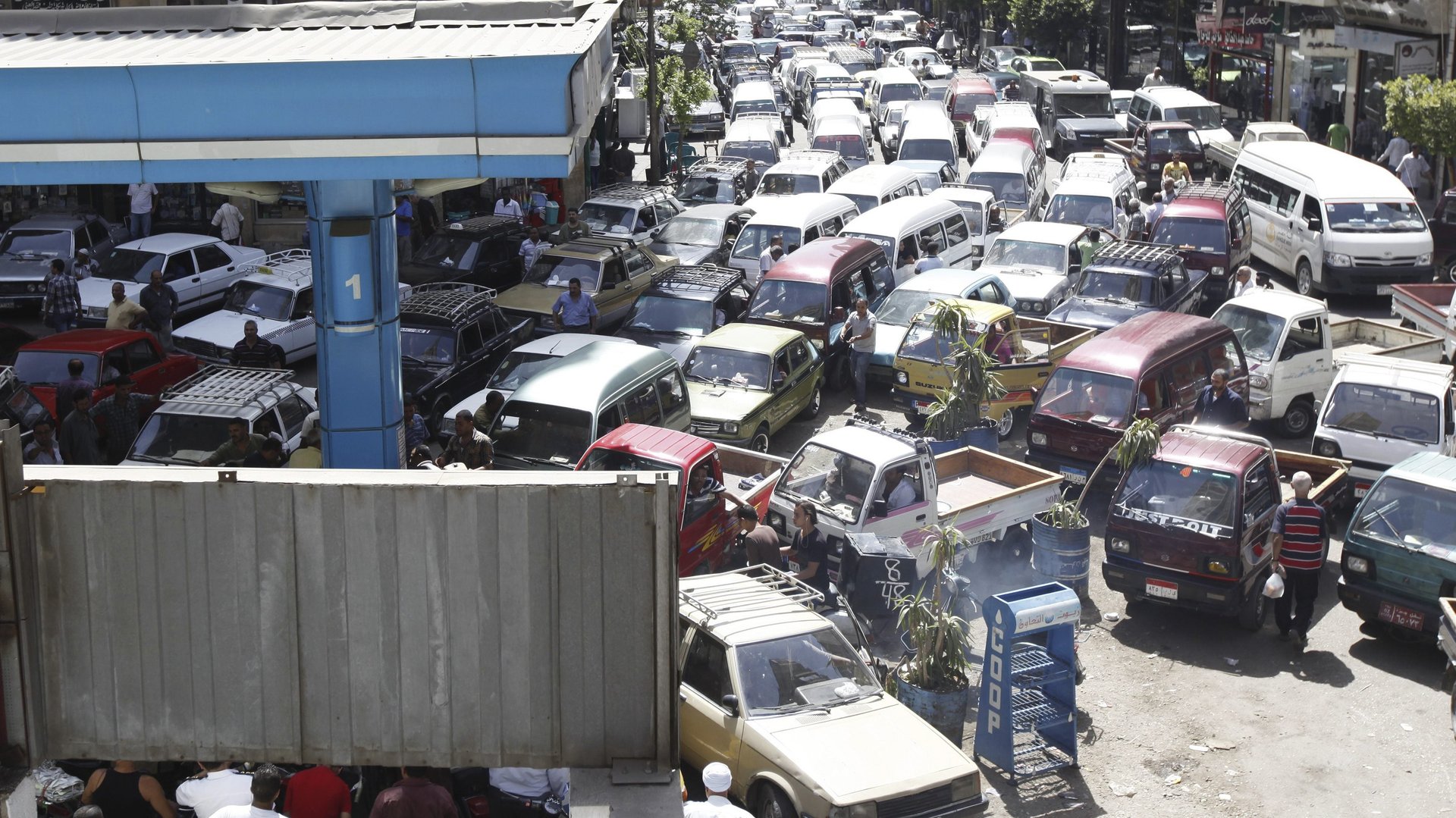Egypt’s austerity cuts have been great for investors but not for Egyptians
Cairo


Cairo
Back in the summer of 2013, days before president Mohamed Morsi was deposed, Egypt was in the midst of a protracted fuel shortage crisis with massive lines of drivers outside of filling stations gridlocking roads.
Egyptians took to the streets to protest Morsi’s rule on June 30 that year. Four years later, with president Abdel Fattah El Sisi at the helm, Egyptians have headed to the petrol pumps to fill up their tanks before fuel subsidies are slashed.
The latest round of austerity measures have been imposed in accordance with the $12 billion IMF loan that Egypt negotiated late last year.
Fuel prices have surged by around 50% overnight. The painful belt tightening measures are hitting the middle class hard in a country where nearly 28% of the population lives below the poverty line calculated at 482 Egyptian pounds ($54) a month.
Inflation has also hit a three-decade high in the past month with electricity bills are set to jump in August, with estimates of up to a 30% mark up.
“I’m probably going to have to raise my prices by tonight too”, says Hassan, a microbus driver who declined to give his last name. “We are all in the same boat. It affects us all and so what we have to endure so the country can get back on its feet. At least we are not like Iraq or Syria!”
There is some cause for optimism. Egypt’s foreign reserves have been replenished topping $31 billion by the end of May—the highest level in six years since the Arab Spring. After resisting devaluing the pound for several months, the second largest economy in Africa floated it last November.
The move has paid off handsomely with the pound ranking as one of the best performing currencies this year. But it has also halved in value, which has diminished the purchasing power of Egyptians.
“Some of the measures taken in the last several months with the IMF being in the picture have managed to send positive signals that Egypt’s economy is heading towards macroeconomic stability” said Amr Adly, a political economist based in Cairo.
However, he warned “the recent increase in energy prices implies further reduction in real incomes and hence more deterioration in the standards of living for the vast majority of Egyptians”.
“Theoretically, the liberalization of prices is meant to correct the market distortions…It may help the economy as an abstraction but it definitely won’t help the majority of the people in the short and medium-term” he added.
The IMF declined to comment in response to Quartz’s questions.
The return of foreign investors is of little comfort to many Egyptians frustrated with the soaring prices ahead of a summer where electricity consumption will be more than usual.
Sayed Shaaban, 23, another microbus driver who was visibly distressed while waiting to fill up his red Suzuki 12-seater, said “We are going straight to hell like this. What can we do?”
He filled up his tank for 120 EGP ($6.60), double what he normally pays.
“I am so pessimistic about the future for my kids. I would support a strike of some sort or a large scale disobedience because this is unsustainable”.
Yesterday dozens of drivers blocked October 6 Bridge, a major arterial highway in metropolitan Cairo, in a show of civil disobedience hours after the fuel hike took effect.
“The people are already dead and he (Sisi) is killing us even more” Shaaban said.